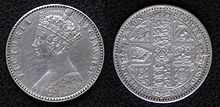盾
Jump to navigation
Jump to search
| ||||||||
Translingual
[edit]Han character
[edit]盾 (Kangxi radical 109, 目+4, 9 strokes, cangjie input 竹十月山 (HJBU), four-corner 72264, composition ⿸𠂆𥃭 or ⿸𣂑目)
Derived characters
[edit]References
[edit]- Kangxi Dictionary: page 801, character 19
- Dai Kanwa Jiten: character 23171
- Dae Jaweon: page 1218, character 3
- Hanyu Da Zidian (first edition): volume 4, page 2475, character 5
- Unihan data for U+76FE
Chinese
[edit]| simp. and trad. |
盾 | |
|---|---|---|
Glyph origin
[edit]| Historical forms of the character 盾 | ||
|---|---|---|
| Shang | Western Zhou | Shuowen Jiezi (compiled in Han) |
| Oracle bone script | Bronze inscriptions | Small seal script |

|

|

|
Pictogram (象形) — a shield (in the oracle bone script). Note that under the 𠂆 is not 直 - one less stroke here.
Etymology
[edit]- “shield”
- Compare Burmese လွှား (hlwa:, “oblong shield”) (Starostin). It is unclear whether Chepang [script needed] (dhəl) is related (Schuessler, 2007). This etymology is incomplete. You can help Wiktionary by elaborating on the origins of this term.
- “dong”
- Borrowed from Vietnamese đồng, from Chinese 銅 (MC duwng, “copper”).

- “guilder; gulden; rupiah”
- Probably first referred to the two shilling coin, also known as the florin, which had four crowned cruciform shields with a rose in the centre. It was later used for the Dutch guilder, which replaced an older currency known as the florin. Since the guilder was used in Indonesia, when the rupiah replaced it, the Chinese name for the guilder continued to be used for the rupiah.
Pronunciation
[edit]- Mandarin
- Cantonese (Jyutping): teon5 / seon5
- Hakka (Sixian, PFS): thún
- Northern Min (KCR): dō̤ng
- Eastern Min (BUC): dōng
- Southern Min
- Wu (Shanghai, Wugniu): 6den
- Mandarin
- (Standard Chinese)+
- Hanyu Pinyin:
- Zhuyin: ㄉㄨㄣˋ
- Tongyong Pinyin: dùn
- Wade–Giles: tun4
- Yale: dwùn
- Gwoyeu Romatzyh: duenn
- Palladius: дунь (dunʹ)
- Sinological IPA (key): /tu̯ən⁵¹/
- (Standard Chinese, variant)+
- Hanyu Pinyin:
- Zhuyin: ㄕㄨㄣˇ
- Tongyong Pinyin: shǔn
- Wade–Giles: shun3
- Yale: shwǔn
- Gwoyeu Romatzyh: shoen
- Palladius: шунь (šunʹ)
- Sinological IPA (key): /ʂu̯ən²¹⁴/
- (Standard Chinese)+
- Cantonese
- (Standard Cantonese, Guangzhou–Hong Kong)
- Jyutping: teon5 / seon5
- Yale: téuhn / séuhn
- Cantonese Pinyin: toen5 / soen5
- Guangdong Romanization: tên5 / sên5
- Sinological IPA (key): /tʰɵn¹³/, /sɵn¹³/
- (Standard Cantonese, Guangzhou–Hong Kong)
Note: seon5 - rare variant.
- Hakka
- (Sixian, incl. Miaoli and Meinong)
- Pha̍k-fa-sṳ: thún
- Hakka Romanization System: tunˋ
- Hagfa Pinyim: tun3
- Sinological IPA: /tʰun³¹/
- (Sixian, incl. Miaoli and Meinong)
- Northern Min
- (Jian'ou)
- Kienning Colloquial Romanized: dō̤ng
- Sinological IPA (key): /tɔŋ⁵⁵/
- (Jian'ou)
- Eastern Min
- (Fuzhou)
- Bàng-uâ-cê: dōng
- Sinological IPA (key): /touŋ³³/
- (Fuzhou)
- Southern Min
- Wu
- Middle Chinese: zywinX, dwonX
- Old Chinese
- (Baxter–Sagart): /*lˤu[n]ʔ/
- (Zhengzhang): /*l'uːnʔ/, /*ɦljunʔ/
Definitions
[edit]盾
- (military) shield
- shield-shaped object
- (figurative) support; aid; assistance
- dong (Vietnamese currency)
- guilder; gulden (several currencies)
- rupiah (Indonesian currency)
Synonyms
[edit]Compounds
[edit]References
[edit]- “盾”, in 漢語多功能字庫 (Multi-function Chinese Character Database)[1], 香港中文大學 (the Chinese University of Hong Kong), 2014–
Japanese
[edit]Alternative forms
[edit]Kanji
[edit]盾
Readings
[edit]Etymology
[edit]| Kanji in this term |
|---|
| 盾 |
| たて Grade: S |
| kun'yomi |
The nominalized form of the verb 立てる (tateru, “stand”).
Noun
[edit]- a weapon stood up or erected before one's body to block and protect from attacks; a shield
Korean
[edit]Etymology
[edit]From Middle Chinese 盾 (MC zywinX).
Historical readings
- Recorded as Middle Korean 쓘〯 (Yale: ssyǔn) in Dongguk Jeongun (東國正韻 / 동국정운), 1448.
- Recorded as Middle Korean 슌〯 (syǔn) (Yale: syǔn) in Hunmong Jahoe (訓蒙字會 / 훈몽자회), 1527.
Pronunciation
[edit]- (SK Standard/Seoul) IPA(key): [sʰun]
- Phonetic hangul: [순]
Hanja
[edit]Compounds
[edit]References
[edit]- 국제퇴계학회 대구경북지부 (國際退溪學會 大邱慶北支部) (2007). Digital Hanja Dictionary, 전자사전/電子字典. [2]
Vietnamese
[edit]Han character
[edit]- This term needs a translation to English. Please help out and add a translation, then remove the text
{{rfdef}}.
Categories:
- CJK Unified Ideographs block
- Han script characters
- Translingual lemmas
- Translingual symbols
- Han pictograms
- Chinese terms borrowed from Vietnamese
- Chinese terms derived from Vietnamese
- Chinese terms borrowed back into Chinese
- Mandarin terms with multiple pronunciations
- Chinese lemmas
- Mandarin lemmas
- Cantonese lemmas
- Hakka lemmas
- Northern Min lemmas
- Eastern Min lemmas
- Hokkien lemmas
- Teochew lemmas
- Wu lemmas
- Middle Chinese lemmas
- Old Chinese lemmas
- Chinese hanzi
- Mandarin hanzi
- Cantonese hanzi
- Hakka hanzi
- Northern Min hanzi
- Eastern Min hanzi
- Hokkien hanzi
- Teochew hanzi
- Wu hanzi
- Middle Chinese hanzi
- Old Chinese hanzi
- Chinese nouns
- Mandarin nouns
- Cantonese nouns
- Hakka nouns
- Northern Min nouns
- Eastern Min nouns
- Hokkien nouns
- Teochew nouns
- Wu nouns
- Middle Chinese nouns
- Old Chinese nouns
- Chinese terms with IPA pronunciation
- Chinese terms spelled with 盾
- zh:Military
- zh:Currencies
- Japanese kanji
- Japanese jōyō kanji
- Japanese kanji with goon reading じゅん
- Japanese kanji with goon reading どん
- Japanese kanji with kan'on reading しゅん
- Japanese kanji with kan'on reading とん
- Japanese kanji with kun reading たて
- Japanese terms spelled with 盾 read as たて
- Japanese terms read with kun'yomi
- Japanese lemmas
- Japanese nouns
- Japanese terms spelled with secondary school kanji
- Japanese terms with 1 kanji
- Japanese terms spelled with 盾
- Japanese single-kanji terms
- Korean terms derived from Middle Chinese
- Middle Korean hanja
- Korean lemmas
- Korean hanja
- Korean hanja forms
- Vietnamese lemmas
- Vietnamese Han characters
